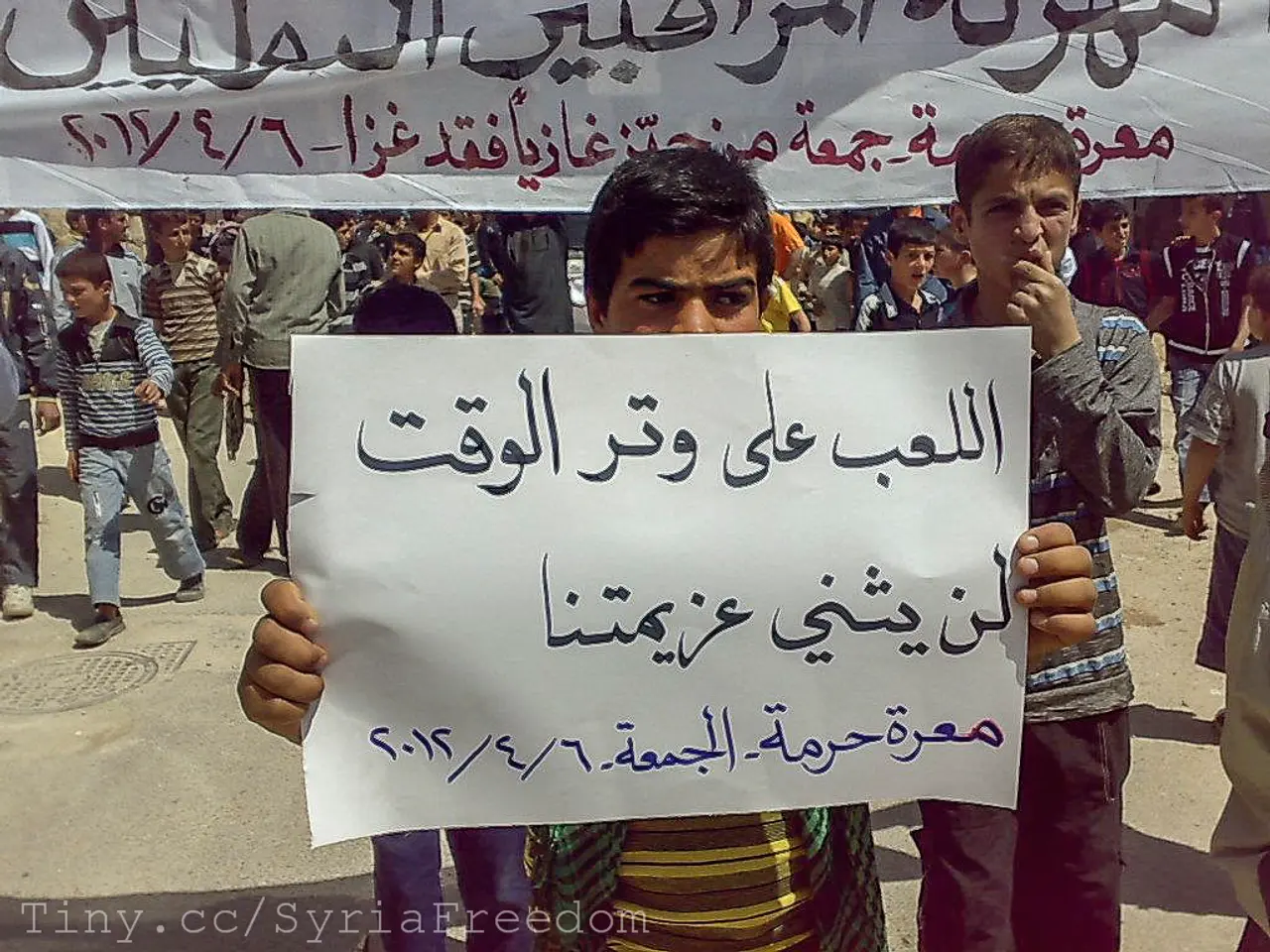Dichotomous Presidential Order: Urge for Demonstrations in Washington D.C.
In an unprecedented move, U.S. President Donald Trump has invoked emergency powers to assume federal control over the Washington D.C. Metropolitan Police Department, deploying National Guard troops to the city [1]. This decision, reminiscent of the deployment of soldiers on the streets of Los Angeles in June, is legally different but has stirred up a storm of controversy.
The federal takeover, which included appointing DEA Administrator Terrance C. Cole as an "Emergency Police Commissioner," has raised significant constitutional and statutory challenges [1][2]. The D.C. Attorney General filed a lawsuit seeking to block the takeover, arguing it violated the Home Rule Act that grants D.C. local control over its police force [1]. A federal judge, Ana Reyes, ruled against the appointment of the federal police head, but stopped short of issuing an immediate restraining order, signalling that without changes one would be ordered [1][2].
The public and local authorities have reacted strongly against the move. D.C. officials, including the Attorney General and Mayor, have condemned the federal takeover as hostile and unlawful. Critics characterize the action as an abuse of power that threatens public safety and undermines local governance [3]. In prior similar situations, local leaders had demanded federal forces be withdrawn to avoid operational confusion and respect local jurisdiction [2].
Despite the legal challenges and opposition, the number of reported offenses in Washington D.C. has seen a decrease. The total number of all offenses has decreased by seven percent, and the number of violent crimes has decreased by nearly a quarter compared to the same period last year [4]. According to the prosecutor's office of the capital district, 2024 was the year with the fewest violent crimes in 30 years [5].
Initially, 800 National Guard soldiers were to be deployed, with more to be mobilized if necessary. However, the White House eventually retreated from full control of the police force, allowing the city’s police chief to remain in charge after the legal pushback [1].
The situation in Washington D.C. has remained largely calm, with larger protests not initially occurring. Protests against Trump's decision are being organized on social media, and residents are encouraged to express their discontent by hanging posters and banging pots [6]. It is unclear how the cooperation between local and federal authorities will work in detail, as there seems to be little coordination with Democratic Mayor Muriel Bowser before Trump's announcement [7].
In summary, Trump's federal takeover and National Guard deployment in Washington D.C. have involved invoking disputed emergency powers that conflict with D.C.’s local control laws, prompting legal challenges and widespread opposition from city officials and public safety experts concerned about the impact on law and order and governance. Despite the controversies, the number of reported offenses in the city has seen a decrease.
Read also:
- Court petitions to reverse established decision on same-sex marriage legalization
- Commemoration of 200 Days of American Resurgence Unveiled
- Minister Bärbel Bas expresses doubts about her tenure as a minister following a recent interview during the summer.
- Politicians from both Republican and Democratic parties are urging President Trump to maintain the security agreement with Australia and the United Kingdom.






